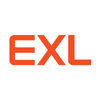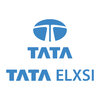Filter interviews by
L&T Technology Services Technical Lead Interview Questions and Answers
22 Interview questions
Different types of risks include financial, operational, strategic, compliance, and reputational risks.
Financial risk: related to the potential loss of financial resources, such as market risk, credit risk, and liquidity risk.
Operational risk: arises from internal processes, systems, or people, leading to errors, fraud, or disruptions.
Strategic risk: involves the impact of business decisions on the organization's ...
Probability plot curves denote the distribution of data points compared to a theoretical distribution.
Probability plot curves help visualize how well a dataset fits a particular distribution.
The curves can indicate if the data is normally distributed or follows a different distribution.
Examples of probability plots include Q-Q plots and P-P plots.
Ppk and Cpk are process capability indices used in Six Sigma to measure the ability of a process to produce output within specification limits.
Ppk and Cpk are statistical measurements that assess how well a process is performing in relation to its specification limits.
Ppk measures the potential capability of a process to produce output within specification limits, while Cpk measures the actual capability of a proc...
C language is a high-level programming language known for its efficiency and flexibility.
C language was developed by Dennis Ritchie at Bell Labs in the early 1970s.
It is widely used for system programming, embedded systems, and software development.
C is a procedural language with a rich set of built-in functions and operators.
Example: printf() function is used to print output in C language.
TCP is connection-oriented, reliable, and slower. UDP is connectionless, unreliable, and faster.
TCP is connection-oriented, meaning a connection is established before data is sent.
TCP is reliable, as it ensures all data is received in the correct order.
TCP is slower than UDP due to the overhead of establishing a connection and error-checking.
UDP is connectionless, meaning data can be sent without establishing a co...
Dependency injection is a design pattern in which components are given their dependencies rather than creating them internally.
Dependency injection helps in achieving loose coupling between classes.
It allows for easier testing and maintenance of code.
There are three types of dependency injection: constructor injection, setter injection, and interface injection.
Dependency injection is a design pattern where objects are passed their dependencies rather than creating them internally. Inversion of Control (IoC) is a broader concept where the control of object creation is inverted from the application to a framework.
Dependency injection is a technique to achieve Inversion of Control (IoC)
In DI, objects are given their dependencies rather than creating them internally
IoC is a...
Abstract class can have both abstract and non-abstract methods, while interface can only have abstract methods.
Abstract class can have constructors, fields, and methods, while interface cannot have any of these.
A class can implement multiple interfaces but can only inherit from one abstract class.
Abstract classes are used to provide a common base for multiple classes, while interfaces are used to define a contract...
Authentication in .NET Core involves validating user credentials and managing user sessions securely.
ASP.NET Core Identity provides a complete authentication solution.
JWT (JSON Web Tokens) can be used for stateless authentication.
Use middleware like 'UseAuthentication()' and 'UseAuthorization()' in the pipeline.
Example: Configure services in 'Startup.cs' with 'services.AddAuthentication()'.
Role-based and policy-ba...
MVC is a software design pattern that separates an application into three main components: Model, View, and Controller.
Model represents the data and business logic of the application
View is responsible for displaying the data to the user
Controller acts as an intermediary between Model and View, handling user input and updating the Model accordingly
L&T Technology Services Technical Lead Interview Experiences
38 interviews found
I applied via Referral and was interviewed in Aug 2024. There were 3 interview rounds.
(2 Questions)
- Q1. What is Ppk and Cpk in Six Sigma??
- Ans.
Ppk and Cpk are process capability indices used in Six Sigma to measure the ability of a process to produce output within specification limits.
Ppk and Cpk are statistical measurements that assess how well a process is performing in relation to its specification limits.
Ppk measures the potential capability of a process to produce output within specification limits, while Cpk measures the actual capability of a process t...
- Q2. What are the different types of risks??
- Ans.
Different types of risks include financial, operational, strategic, compliance, and reputational risks.
Financial risk: related to the potential loss of financial resources, such as market risk, credit risk, and liquidity risk.
Operational risk: arises from internal processes, systems, or people, leading to errors, fraud, or disruptions.
Strategic risk: involves the impact of business decisions on the organization's long-...
(2 Questions)
- Q1. Explain ISO 13485 implementation in your current employer?
- Q2. What the curves on the Probability plot denotes?
- Ans.
Probability plot curves denote the distribution of data points compared to a theoretical distribution.
Probability plot curves help visualize how well a dataset fits a particular distribution.
The curves can indicate if the data is normally distributed or follows a different distribution.
Examples of probability plots include Q-Q plots and P-P plots.
(2 Questions)
- Q1. Salary discussed
- Q2. Nothing more than the salary discussed
I applied via Recruitment Consulltant and was interviewed in Jul 2024. There were 2 interview rounds.
(2 Questions)
- Q1. Electrical review of schematic
- Ans.
Analyze and provide feedback on an electrical schematic diagram
Review the components and connections in the schematic
Check for any errors or inconsistencies in the design
Ensure that the schematic follows industry standards and best practices
Provide suggestions for improvements or optimizations
Verify that the schematic meets the project requirements
- Q2. Buck converter control loop mechanism
- Ans.
Buck converter control loop mechanism is used to regulate the output voltage by adjusting the duty cycle of the switch.
The control loop compares the actual output voltage with a reference voltage and adjusts the duty cycle of the switch accordingly.
It typically consists of a feedback loop with a voltage divider, error amplifier, and PWM controller.
The PWM controller generates a signal to control the switch on and off t...
(2 Questions)
- Q1. Job and power electronics based tech round
- Q2. Operation of Flyback converter
- Ans.
A flyback converter is a type of switching power supply that uses a transformer to store energy and transfer it to the output.
Utilizes a transformer to store energy and transfer it to the output
Operates by storing energy in the transformer during the switch-on time and releasing it to the output during the switch-off time
Commonly used in low power applications such as battery chargers and LED drivers
Interview Preparation Tips
I applied via Recruitment Consulltant and was interviewed in Apr 2024. There was 1 interview round.
(5 Questions)
- Q1. About your product
- Q2. Tell me about yourself
- Q3. Describe your last project
- Q4. Power system testing
- Q5. Electro-Mechanical standard
- Ans.
Electro-Mechanical standard refers to the set of guidelines and regulations for designing and manufacturing devices that combine electrical and mechanical components.
Electro-Mechanical standards ensure compatibility and safety of devices.
Examples include standards for connectors, wiring, and grounding in electronic devices.
Compliance with standards is important for product quality and reliability.
Interview Preparation Tips
- Engineering
- Design
- Power System
- Q1. Tell me about yourself
- Q2. Work experience
I applied via Naukri.com and was interviewed before Dec 2023. There were 3 interview rounds.
(2 Questions)
- Q1. Linkliat related questions.
- Q2. Bitwise related questions
(2 Questions)
- Q1. Rtos related questions.
- Q2. One coding assignment.
(2 Questions)
- Q1. Salary discussion
- Q2. Salary brganing.
I applied via Naukri.com and was interviewed in Oct 2023. There was 1 interview round.
(5 Questions)
- Q1. Tell me about yourself
- Q2. What id dependency injection
- Ans.
Dependency injection is a design pattern in which components are given their dependencies rather than creating them internally.
Dependency injection helps in achieving loose coupling between classes.
It allows for easier testing and maintenance of code.
There are three types of dependency injection: constructor injection, setter injection, and interface injection.
- Q3. Difference between dependency injection and IOC
- Ans.
Dependency injection is a design pattern where objects are passed their dependencies rather than creating them internally. Inversion of Control (IoC) is a broader concept where the control of object creation is inverted from the application to a framework.
Dependency injection is a technique to achieve Inversion of Control (IoC)
In DI, objects are given their dependencies rather than creating them internally
IoC is a desi...
- Q4. Difference between abstract class and interface
- Ans.
Abstract class can have both abstract and non-abstract methods, while interface can only have abstract methods.
Abstract class can have constructors, fields, and methods, while interface cannot have any of these.
A class can implement multiple interfaces but can only inherit from one abstract class.
Abstract classes are used to provide a common base for multiple classes, while interfaces are used to define a contract for ...
- Q5. Authenticationin .net core
- Ans.
Authentication in .NET Core involves validating user credentials and managing user sessions securely.
ASP.NET Core Identity provides a complete authentication solution.
JWT (JSON Web Tokens) can be used for stateless authentication.
Use middleware like 'UseAuthentication()' and 'UseAuthorization()' in the pipeline.
Example: Configure services in 'Startup.cs' with 'services.AddAuthentication()'.
Role-based and policy-based a...
Skills evaluated in this interview
I applied via Referral and was interviewed in Apr 2024. There were 2 interview rounds.
(1 Question)
- Q1. Technical questions from Resume
(1 Question)
- Q1. Salary Discussion
(2 Questions)
- Q1. Socket programming
- Q2. Difference bw Tcp vs udp
- Ans.
TCP is connection-oriented, reliable, and slower. UDP is connectionless, unreliable, and faster.
TCP is connection-oriented, meaning a connection is established before data is sent.
TCP is reliable, as it ensures all data is received in the correct order.
TCP is slower than UDP due to the overhead of establishing a connection and error-checking.
UDP is connectionless, meaning data can be sent without establishing a connect...
Skills evaluated in this interview
I appeared for an interview in Oct 2024, where I was asked the following questions.
- Q1. Tell me something about yourself
- Q2. Why you looking for the change
- Ans.
I'm seeking new challenges and opportunities for growth that align with my career goals and values.
Desire for professional growth: I'm looking for a role that offers more leadership opportunities, such as managing a larger team.
Alignment with company values: I want to work for an organization that prioritizes innovation and sustainability, which is important to me.
Seeking new challenges: I'm eager to tackle more comple...
I applied via Approached by Company and was interviewed before Dec 2023. There were 2 interview rounds.
(2 Questions)
- Q1. Experience related
- Q2. Materials
(2 Questions)
- Q1. General discussion
- Q2. Salary discussion
Interview Preparation Tips
Top trending discussions






L&T Technology Services Interview FAQs
The duration of L&T Technology Services Technical Lead interview process can vary, but typically it takes about less than 2 weeks to complete.
Tell us how to improve this page.
L&T Technology Services Interviews By Designations
- L&T Technology Services Senior Engineer Interview Questions
- L&T Technology Services Technical Lead Interview Questions
- L&T Technology Services Design Engineer Interview Questions
- L&T Technology Services Associate Engineer Interview Questions
- L&T Technology Services Software Engineer Interview Questions
- L&T Technology Services Engineer Interview Questions
- L&T Technology Services Senior Software Engineer Interview Questions
- L&T Technology Services Graduate Engineer Trainee (Get) Interview Questions
- Show more
Interview Questions for Popular Designations
Overall Interview Experience Rating
based on 30 interview experiences
Difficulty level
Duration
Technical Lead Interview Questions from Similar Companies
L&T Technology Services Technical Lead Reviews and Ratings
based on 259 reviews
Rating in categories
|
Senior Engineer
6.1k
salaries
| ₹5 L/yr - ₹17 L/yr |
|
Engineer
4.8k
salaries
| ₹1 L/yr - ₹8.2 L/yr |
|
Technical Lead
2.2k
salaries
| ₹8.5 L/yr - ₹30 L/yr |
|
Project Lead
1.6k
salaries
| ₹5.8 L/yr - ₹23 L/yr |
|
Software Engineer
1.5k
salaries
| ₹3 L/yr - ₹10 L/yr |

LTIMindtree

DXC Technology

Mphasis

EXL Service
- Home >
- Interviews >
- L&T Technology Services Interview Questions

















